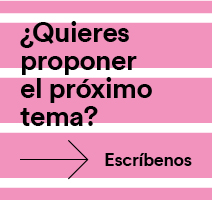Give your opinion
If orchestras were liberal

Last November a roundtable took place at School on Liberalism and Freedom with the participation of speakers Alfredo Cruz and Montserrat Herrero, professors at Philosophy, and Agustín Laje, PhD student specialist in topic. On the occasion of this meeting Asís Cortés Vidal de Villalonga, a fourth year student of Philosophy, Politics & Economics (PPE), has elaborated a reflection that brings us closer to this political question not only from the essay, but also from the metaphor.
Once upon a time there was a group of music lovers, group , who each played an instrument. They liked to play together, uniting the sounds and melodies of their different instruments, and for this they always chose one - usually the most experienced - who was in charge of coordinating them all so that they sounded as a whole: the director. The union of all the instruments under the guide of the director was called an orchestra. Music was their life. From an early age they had grown up with it, they had learned it from their parents, who in turn had learned it from their parents, and so musical knowledge was passed on from generation to generation.
That's how they worked, until Levi arrived, a director who, although he was an exceptional artist and had been chosen by the musicians themselves, began to disregard their preferences, and to use them to play the pieces he liked without consulting them beforehand. He not only decided everything, but also imposed it: what pieces to play, how to play them, and what each member did at any given moment. At one point he began to expel some musicians from the orchestra because he considered them unfit. Although the orchestra sounded good, the musicians were frustrated, as they no longer had room to develop their art; they were limited to playing grade by grade what Levi said on pain of being expelled from group. Fear flooded the atmosphere, especially after Levi decided to arbitrarily dismiss some of them, without any musical reason, on a whim staff. The musicians obeyed Levi because they knew that if they stayed out of the orchestra they would no longer be able to play, and they preferred to stay as they were rather than live without music.
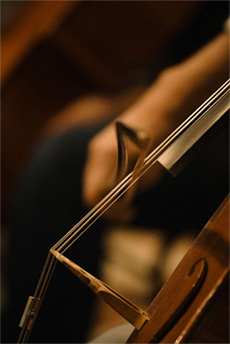 Little by little the tension grew until Levi's decision broke the musicians' patience: from now on, he would take care of all the instruments. He would keep them, and it would be him who would tell each one which one to play. Faced with this measure of the director to have everything absolutely controlled, the musicians said: "That's it. It cannot be that Levi deprives us of our most precious treasure: our instrument. Let's throw him out and establish our own rules". And so they did, they went to agreement and together they took Levi by force and took him out of the building.
Little by little the tension grew until Levi's decision broke the musicians' patience: from now on, he would take care of all the instruments. He would keep them, and it would be him who would tell each one which one to play. Faced with this measure of the director to have everything absolutely controlled, the musicians said: "That's it. It cannot be that Levi deprives us of our most precious treasure: our instrument. Let's throw him out and establish our own rules". And so they did, they went to agreement and together they took Levi by force and took him out of the building.
Once back, Maximilio, the trumpet player, took the floor and said: "It can't be that one should rule over the others; no more conductors, from now on we will rule the musicians". Everyone nodded, and so, to ensure that the musicians were the rulers, they agreed on a set of rules. From that moment on there would be no director, but simply a coordinatorThe musicians agreed that from then on there would be no , but simply a "conductor" in charge of seeing that the instruments were in good condition, and of providing each musician with the instrument of his choice. They realized that without director, they could now choose which pieces to play. However, when it came to deciding, there was a disparity of opinions and it was impossible to agree on agreement. Not wanting to make the mistake of imposing one opinion on another again, they decided that it would be better for each to play on his own - even if they stopped playing together - than for one to impose himself on the others. Thus, there would no longer be a proper orchestra, but free musicians, who could choose any instrument and play any melody. Those who wanted to could play with others and play together, but always in small groups, in which they could still be heard at agreement. In general, everyone played on their own, and if at any time someone disturbed the others, the coordinator would intervene. There was only one rule: no one would impose himself on the others, and whoever did so would be expelled ipso facto. The musicians had regained their creative freedom. They could now play the song they wanted to play the way they wanted to play it; they improvised the melody, they were no longer obliged to read any score or play according to any harmony. A liberal orchestra had been formed.
Last week I had the good fortune to attend, along with more than a hundred other students, to the roundtable on liberalism and freedom. This story is meant to be a snapshot of the reflection that the discussion we enjoyed suggested to me. Fortunately, in real life, orchestras are not liberal. Musicians are put on agreement for a director, Each musician is aware that, as such, he or she can participate in a greater good, a more perfect music, than he or she can achieve on his or her own. The base and the melody are not an imposition, but precisely the space in which the harmony between instruments appears, unattainable individually. In music, for there to be counterpoint, there must be more than one melody. Only to the extent that each musician transcends his preference for one grade or another and plays the notes that correspond to him at the right moment, the orchestra sounds as such and the music appears in its most sublime expression.
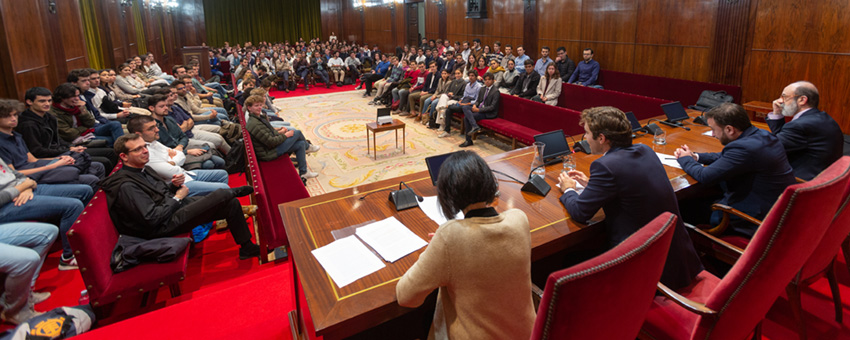
The roundtable was a unique meeting , as we were able to witness Agustín Laje, a political phenomenon, sitting at the table with two philosophical giants of the stature of Montserrat Herrero and Alfredo Cruz -he himself called it a challenge-. Laje's point of view clearly enriched the discussion, he presented his arguments with the support of the continuous gestures of approval from Professor Herrero, his teacher. Their thesis were very similar. Montserrat, with the terminological finesse typical of her philosophical background, shunned the reductionist labels of "liberalism" and "freedom", marking the former as a tradition as rich in nuances as authors have gone through it, and the latter as a concept whose importance requires differentiation of planes1. In his opinion, with the current totalizing tendency of the state, it is essential to defend political freedom: the non-interference of political power in moral, private matters. Along the same lines, Laje, following Hayek's lead, said that there are two types of liberalism, one rationalist and totalitarian - which does not properly deserve the label of liberal -, and the other empirical, which is the one he defended, which understands freedom as the absence of coercion.
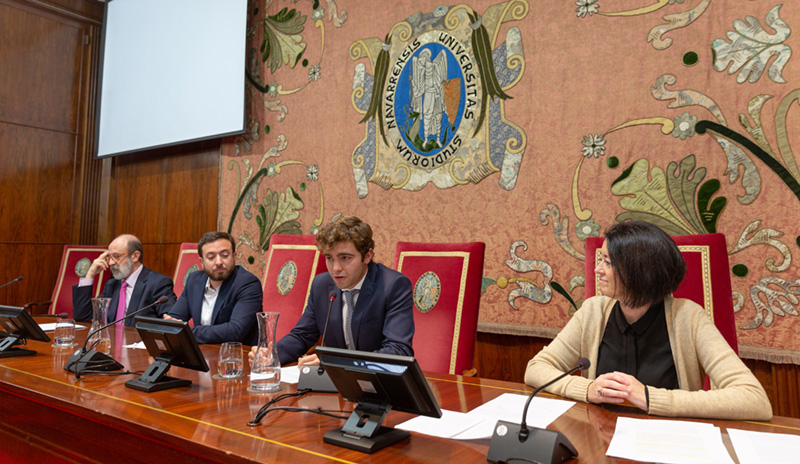
Faced with a real problem, such as political imposition by the State, the liberal tradition proposes to guarantee a private sphere of liberties, inalienable by political power, just as, faced with the imposition of the director orchestra, Maximilian and company chose to renounce a common touch. Morality and politics are separated, morality as a private matter, and politics as a mechanism to guarantee individual rights.
In contrast, Don Alfredo claimed that the displeasure with politics, which is after all the public sphere, that which concerns us all, cannot be answered by disengaging from the public sphere, but precisely by wanting to actively participate in its configuration. Liberal freedom, as the absence of coercion, is freedom in the negative sense, and its problem is that it renders trivial everything that it subjects to choice. Morality and politics cannot be separated because every decision seeks a good, and is therefore moral. If, instead of understanding freedom as the choice of a good, in a positive sense, it is understood only as the absence of coercion, once freedom is achieved without coercion, it does not matter whether one chooses one thing or another. This absence of coercion is an end in itself. In its reduction to absurdity, this freedom in the negative sense - said Alfredo - idiotizes the voter, because, instead of aspiring to the good, he is content to be able to choose without coercion among trivialities. I choose freely, but I choose between brands of detergent. If in an orchestra it is not decided in common which piece is going to be played and it is left to the spontaneity of each instrumentalist, the decision on which grade to play becomes trivial. It makes no difference which grade to play. The point core topic in Professor Cruz's theory is the notion of common good , and it is that the human being, as a social being by nature, is called to goods that exceed his particular good, in the same way that a musician is called to be able to play with other musicians and achieve together the common good of a symphony, a good that is unattainable individually.
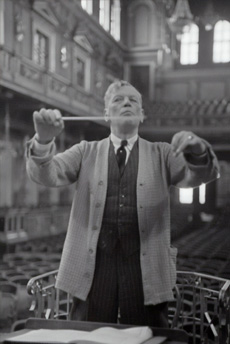 In the wake of the roundtable, I could have dedicated these lines to vindicate the true university, which is the one that goes beyond the boundaries of credits and obligations; that implies a whole vital attitude, marked by the search for truth, and therefore also for good and beauty. I could also have taken the opportunity to ask here if whether or not this genuine university spirit is still aliveAnd although the question that gave degree scroll to the roundtable was whether liberalism and freedom were compatible, the classroom Magna, filled to capacity, was responsible for answering that yes, the university spirit is more alive than ever. alive and kicking-. In the same vein, he could have launched a series of questions into the air: why don't we set up more round tables?, o What will we do when students with initiatives do not remain at our university?The university is a space between professors and students, where knowledge and the desire to learn come together. "Only by transcending the sphere of the requirements of subject will we move teachers to go beyond and thus join us in the exciting journey of knowledge."would have looked good, wouldn't it? It is true, I could have dealt with these questions, and in fact that was my first intention, but it so happened that, on the same day that I had to send this review of the roundtable, I went to the concert of the University Symphony OrchestraAnd while I was listening to them play, an idea conquered me: It's a good thing that orchestras are not liberal..
In the wake of the roundtable, I could have dedicated these lines to vindicate the true university, which is the one that goes beyond the boundaries of credits and obligations; that implies a whole vital attitude, marked by the search for truth, and therefore also for good and beauty. I could also have taken the opportunity to ask here if whether or not this genuine university spirit is still aliveAnd although the question that gave degree scroll to the roundtable was whether liberalism and freedom were compatible, the classroom Magna, filled to capacity, was responsible for answering that yes, the university spirit is more alive than ever. alive and kicking-. In the same vein, he could have launched a series of questions into the air: why don't we set up more round tables?, o What will we do when students with initiatives do not remain at our university?The university is a space between professors and students, where knowledge and the desire to learn come together. "Only by transcending the sphere of the requirements of subject will we move teachers to go beyond and thus join us in the exciting journey of knowledge."would have looked good, wouldn't it? It is true, I could have dealt with these questions, and in fact that was my first intention, but it so happened that, on the same day that I had to send this review of the roundtable, I went to the concert of the University Symphony OrchestraAnd while I was listening to them play, an idea conquered me: It's a good thing that orchestras are not liberal..
1 In this sense he spoke of ontological freedom - as the openness of the human being to opposites -, freedom of choice - understood as the capacity to exercise this ontological freedom -, moral freedom - understood as the choice of the good -, and finally political freedom - as the possibility of participating in political life -.
If you liked the article, you might be interested in one of our Degrees!




